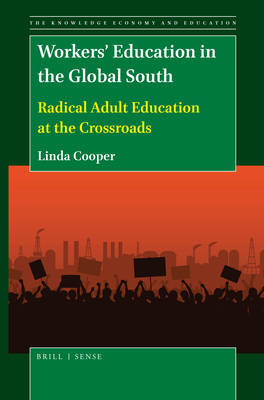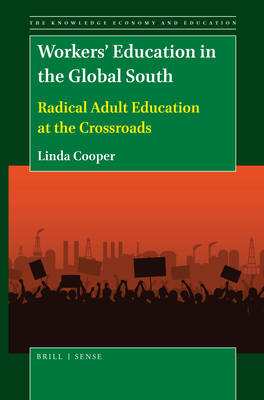
- Afhalen na 1 uur in een winkel met voorraad
- Gratis thuislevering in België vanaf € 30
- Ruim aanbod met 7 miljoen producten
- Afhalen na 1 uur in een winkel met voorraad
- Gratis thuislevering in België vanaf € 30
- Ruim aanbod met 7 miljoen producten
Zoeken
€ 210,95
+ 421 punten
Uitvoering
Omschrijving
Workers' Education in the Global South explores the historical development of radical workers' education in South Africa as one particular strand within the broader tradition of radical adult education. Drawing on the theoretical resources of Activity Theory, Gramsci, Freire and others, it investigates the key features of workers' education as a form of pedagogy with a unique history and logic of practice, and explores how it has been shaped by its location within labour and other social movements as well as its 'southern' location within the global political economy. Successive chapters explore its counter-hegemonic but contested purposes, its knowledge practices that seek to overcome the historical divide between intellectual and manual labour, and a pedagogy which often assumes didactic forms but which retains a democratic character through its embeddedness in working class experience. It illustrates the rich processes of experiential learning that happen through day-to-day organising, in workers' cultural activity as well as through mass action. It argues that this tradition of workers' education currently stands at a crossroads, as global neoliberal market policies and post-apartheid education and training policies threaten to undermine its radical social vision, and concludes by offering ideas on how this tradition of radical workers' education might be renewed.
Specificaties
Betrokkenen
- Auteur(s):
- Uitgeverij:
Inhoud
- Aantal bladzijden:
- 220
- Taal:
- Engels
- Reeks:
- Reeksnummer:
- nr. 11
Eigenschappen
- Productcode (EAN):
- 9789004428973
- Verschijningsdatum:
- 9/04/2020
- Uitvoering:
- Hardcover
- Formaat:
- Genaaid
- Afmetingen:
- 155 mm x 235 mm
- Gewicht:
- 454 g

Alleen bij Standaard Boekhandel
+ 421 punten op je klantenkaart van Standaard Boekhandel
Beoordelingen
We publiceren alleen reviews die voldoen aan de voorwaarden voor reviews. Bekijk onze voorwaarden voor reviews.








